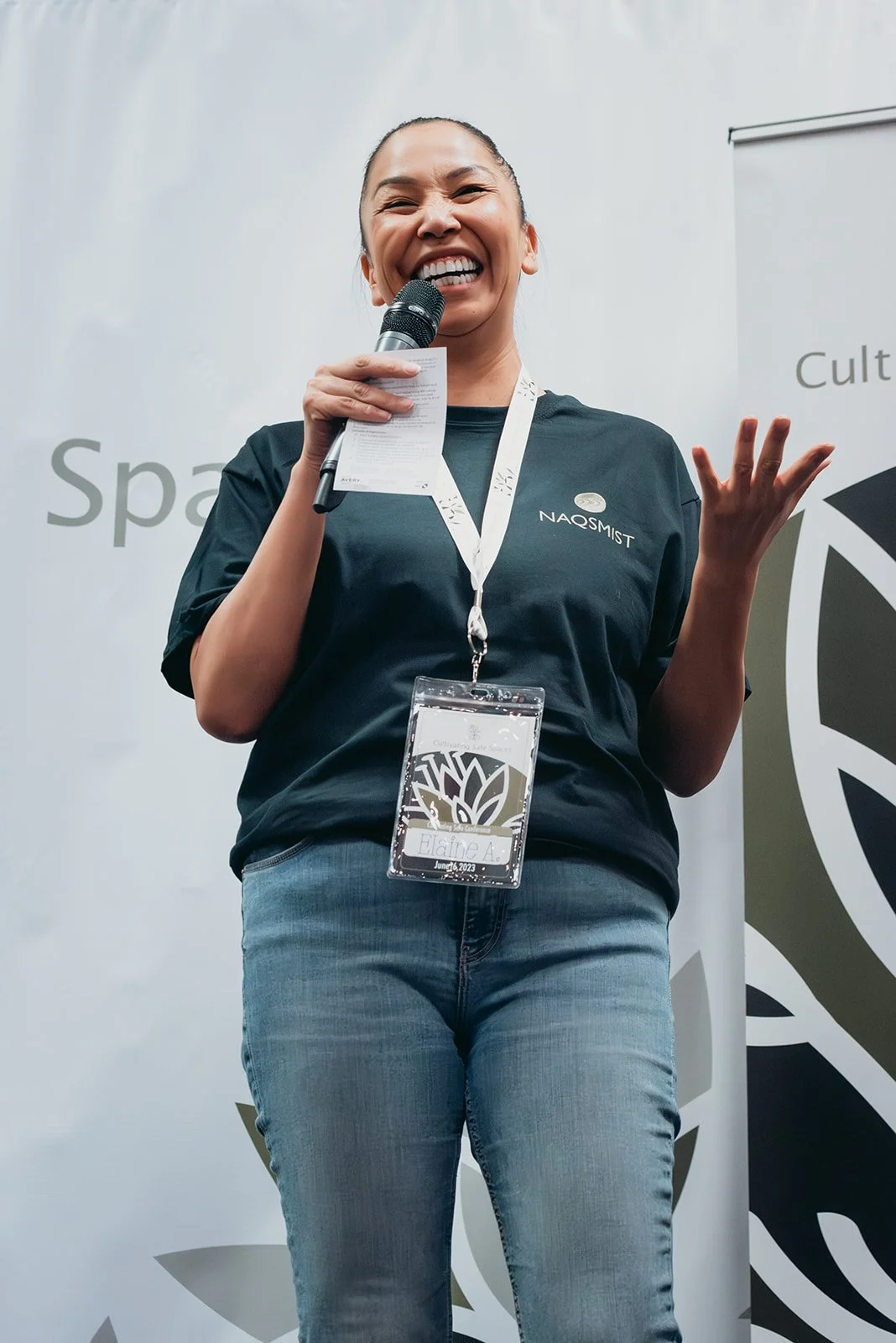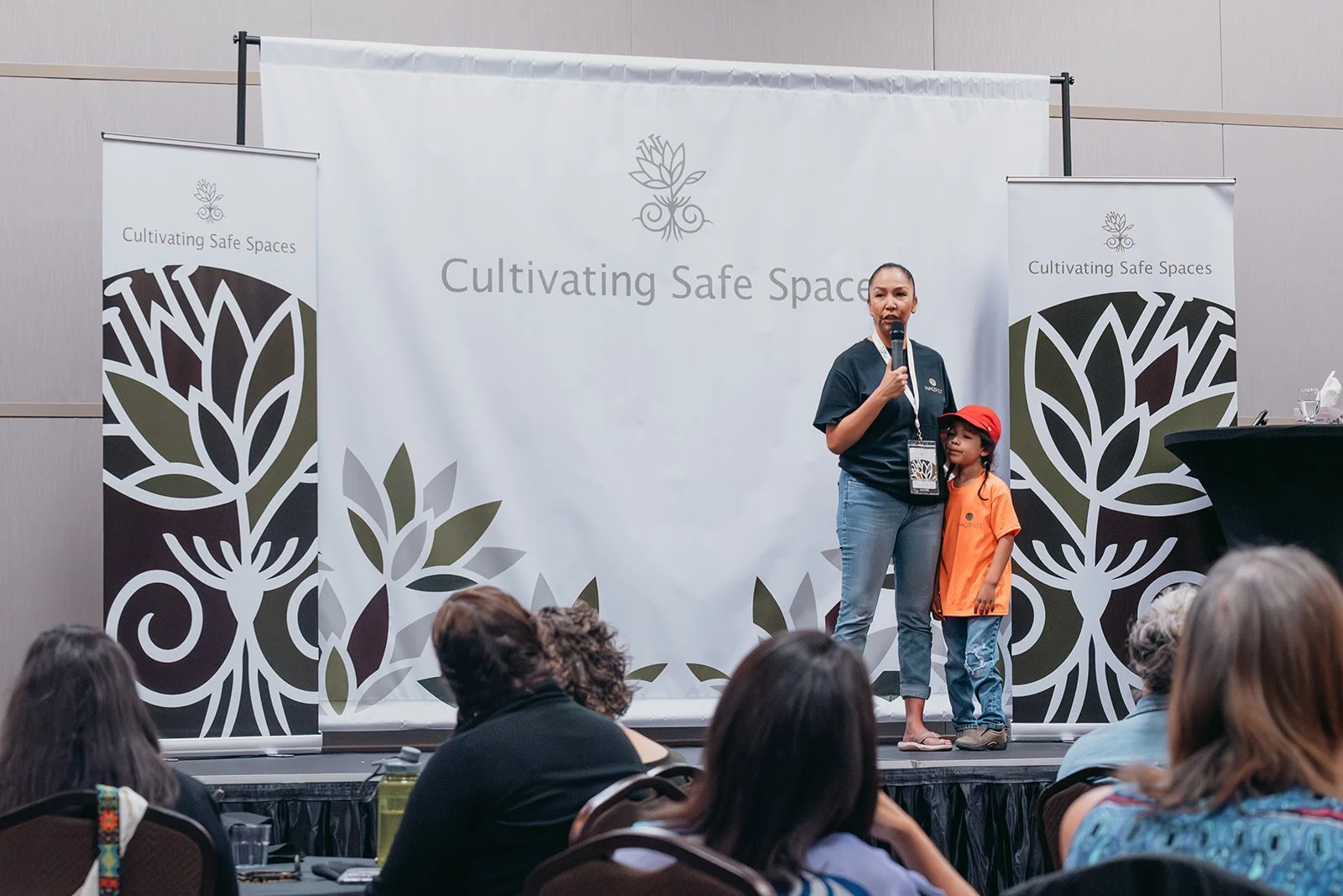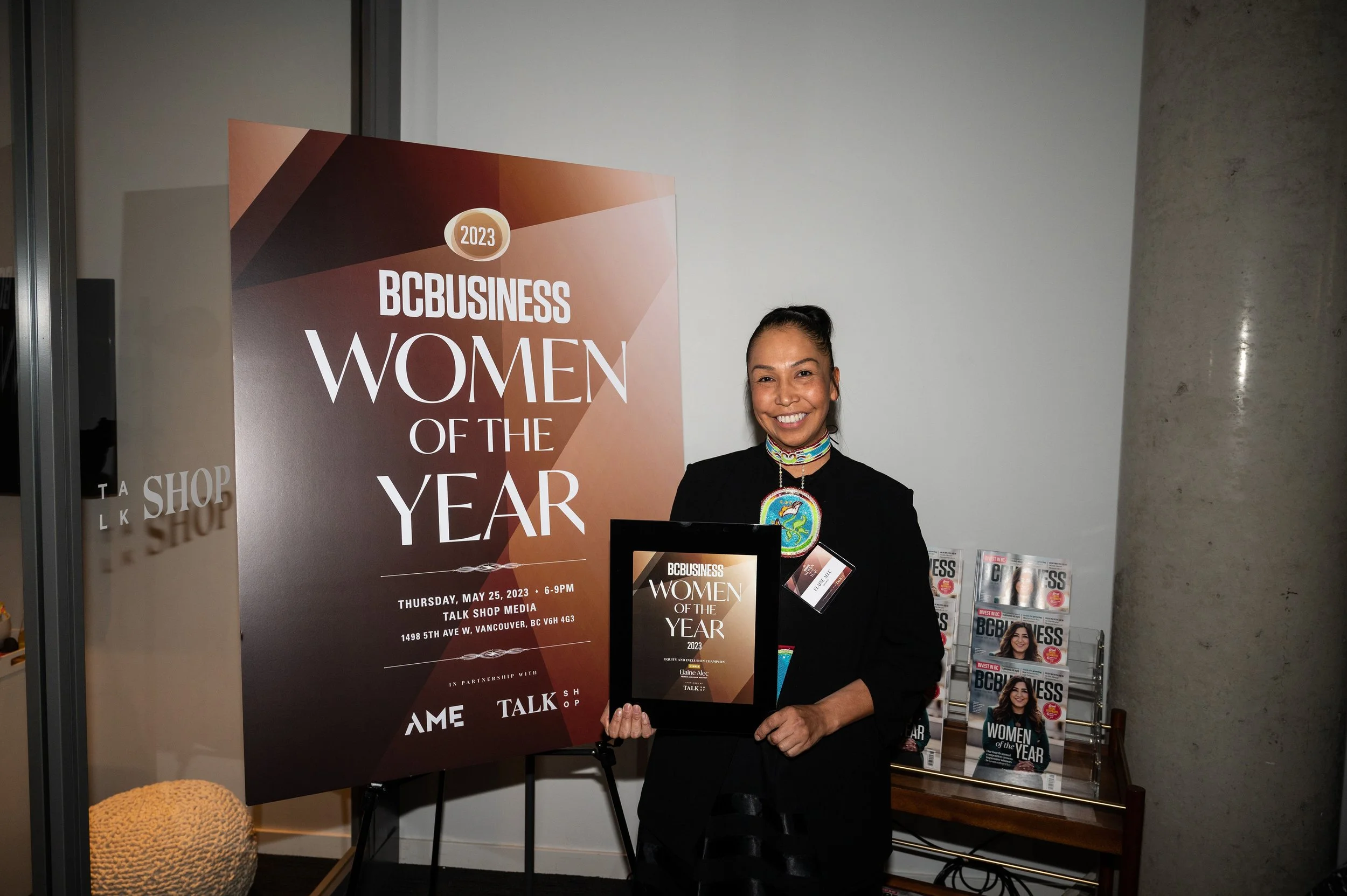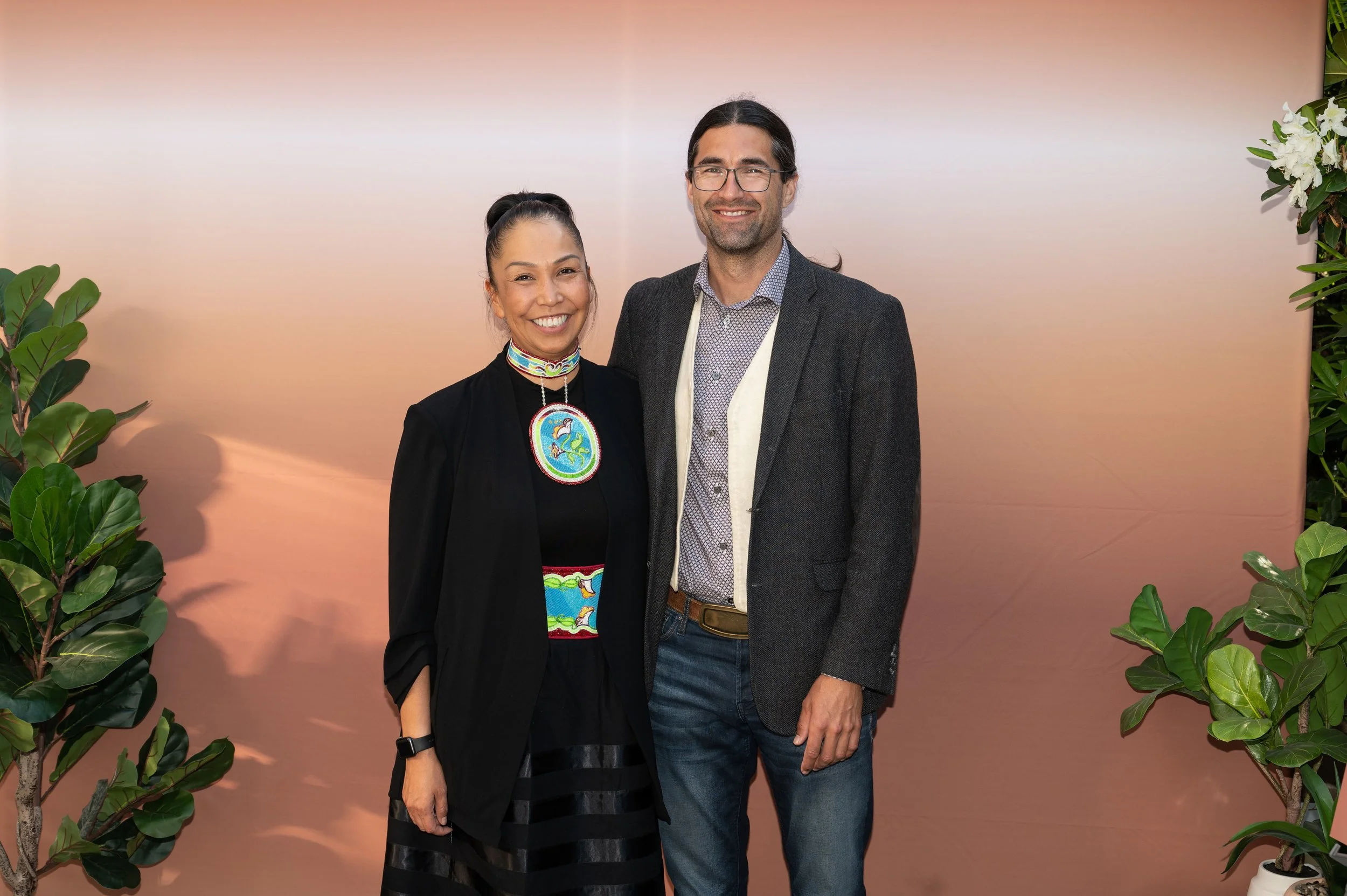Elaine Alec On Leading Social Impact And Healing Through Ancestral Connection
Elaine Alec is a storyteller, facilitator and CEO of Naqsmist which translates into “many coming together as one”.
She is an expert in Indigenous planning processes and has extensive experience working with Indigenous governance and decision-making and shifting systems and engagement pathways to support self-determination.
She is author of Calling My Spirit Back and belongs to the Syilx and Secwepemc nations from the Southern interior of British Columbia and Washington State. She is registered with the Penticton Indian Band, where she spent most of her life.
Elaine discusses Why Her team uses transformative storytelling to inspire Organisational healing and How her work supports reconciliation, decolonisation and systems change.
Highlights from the interview (listen to the podcast for full details)
[Sarah Ripper] - To start off, could you please share a bit about your background and what led you to where you are today?
[Elaine Alec] - I'll first introduce myself the way I was taught. [Introduces self in Syilxin]. What I said in my native language was, “good day, elders, family, friends, leaders, young people, Two Spirit and non-binary folks. My name is T'ik'init'k and I'm from the Syilx and Secwepemc nations.” My name T'ik'init loosely translates into standing by water. I'm from the Syilx nation from my mum's side and the Secwepemc nation from my dad's side. The English name given to me is Elaine Alec.
Are there any significant milestones in your life that have led you to where you're at personally and professionally?
Every time someone asks me about milestones, I can never think of just one! There are so many milestones that have led me to where I am professionally and personally. But I think the one I fall back on the most, the one point where my life started to shift, was when I decided to get sober. I started drinking heavily at the age of 12 because of my childhood trauma, and I drank very heavily until I was about 30 years old. Everything between then was me just struggling to figure out how to survive. When I decided to get sober, that was the moment I realised I had to heal by feeling my feelings, dealing with some stuff and being accountable for some of the things I had done in my life. When I was able to do that, I was able to let go of some of the shame and forgive myself so I could move forward, feel deserving of good things that came into my life and no longer self-sabotage. Now I'm at this point, where I am going to be 16 years sober, and because of that, I have been able to become a better person, friend, mother, and businessperson. I have worked to feel worthy of all the things I've accomplished in the last few years of my life.
What led you to start your own enterprises and collaborations in that space?
I've been an entrepreneur my entire life, and I started my first business when I was 21 years old. Since then, this is the sixth company I've started, but this company captures my life's work and everything that has led me up to this place.
The goal I have in this latest enterprise is to promote healing for the mind, body, and spirit by sharing the stories of my ancestors. The work we do can be about economic development, governance, or climate management; but whatever it is we're in the space talking about, the foundation of our work must be healing.
[This is] especially if we're talking about self-determination for our nations and needing to understand a lot of our decisions are built from a place of fear. We are learning to trust, love and respect ourselves so we can move forward and make better decisions. This is the focus of the work that I want to do from here on.
How have the lived experiences from yourself and those who have stood behind you helped in identifying key systemic barriers?
I always say I'm very privileged despite all my traumas. Despite all the bad things that happened in my life because of systemic racism, colonialism, the patriarchy, residential schools; despite all those things that happened to me, I was privileged enough to be raised by a grandmother who spoke our language fluently. Every night, my qaqna, my grandma would rub my back and tell me stories in our language. She would tell me these stories, we call them sənk̓l̓ip stories or ‘coyote’ stories.
She would tell me these stories every night, and what I didn't realise is the language and stories she told me were our Indigenous laws. They were our protocols, they were our ways of being, governing and contributing to the world.
I didn't know that until I was 30. I didn't know all the things I had learned from my grandmother were things not everybody got to learn because of residential schools and our languages being stripped from us. I was raised by two parents. My dad and mum went to residential school. They were both alcoholics and yet they were still warriors. My dad was a part of the American Indian Movement and Red Power Movement. My mum was also a strong supporter of the movement. I grew up going to government takeovers, where they would take over government buildings and put-up roadblocks. They were very frontline, and there were many activists and advocates in Indigenous rights spaces. That has driven me to have a strong sense of identity. I have a strong sense of identity because of my parents, grandmother, and ancestor. I was brought to and raised in ceremony; my mom brought me all over North America to different ceremonies with different tribes. I learned about our prophecies and our stories from all over. Those things drive me, I have this deep, strong faith in our ways of knowing and I don't always know what it means to carry that forward, but I trust it. I trust that whatever these stories tell me to do is the work I'm supposed to be doing.
Are there particular ways you connect with your ancestry? What are some of the ways you connect to that knowing and trust?
There are a few teachings. Usually when I introduce myself, I'll also say the names of my ancestors out loud. I'll also say that my mum and my dad have both passed, so I introduce my parents, my grandparents, and the people I descend from. I was told when I say their names out loud, especially when I'm in an important decision-making space and I'm nervous or scared, it calls them into that space with me to provide guidance. They help me with my words. I have the courage to speak from the heart without preparation, this is one thing I was taught from a very young age, I was not allowed to write my words down. I always must speak from the heart. I've never prepared anything, I never look at things ahead of time, I just trust in that spirit of speaking from the heart and leading from that place. The other piece I was told was that whenever your hands sweat, whenever your stomach feels nervous, put your hand up and speak. Just open your mouth, you don't even need to know what you're going to say.
When your hands are sweaty and your stomach feels butterflies, you just open your mouth because that's the ancestors wanting to speak through you. I was taught that wasn't fear, that was your ancestors. Trust that feeling and instinct of your body, that something needs to be said, even if you don't know what's going to come out.
What are the challenges, opportunities, and insights you've encountered through running several businesses and bringing your lived experience and culture into that space?
I was going to say it depends on the space I'm in. But I think one of the biggest challenges I face consistently, whether I’m speaking with my own people, government or other corporations, the biggest challenge I face is fear. This fear is a deeply entrenched colonial system that lives in each one of us. Colonialism has done an amazing job at making us doubt ourselves, who we are and what we know. We're constantly working from a place of fear and control. When we work from a place of fear and control, we're triggering each other to work from the lowest part of our brain and we cannot be creative, or solutions based. We cannot think beyond the status quo, so we become complicit to the system because we're working from that place.
My only goal when I move into spaces is to not figure out how I'm going to run the agenda or get the outcome I'm being hired for; my number one priority in every space I occupy is to cultivate safety, connection and belonging.
That's my only goal, whether it's a governance, business, or a political space it's all about cultivating that safety, connection and belonging, because when you cultivate those things, you can help support people to work from the best part of their brains, where they are creative, solutions based, efficient, and courageous.
What projects or initiatives have you come across recently that are creating a powerful change?
We just partnered with the Province of British Columbia, Canada. We worked with the Parliamentary Secretariat on Gender Equity. We were originally brought in to help support the government's six pillar action plan on how to address gender-based violence in British Columbia. One of the things that came out from the work that they had been doing is a lack of Indigenous voice in that action plan. When we came into the space, we had years and years of experience of hearing about gender-based violence and violence in Indigenous communities, and one of the consistent messaging that we heard from our people was that the answer to violence and trauma in our communities is coming of age, the answer to violence and trauma in our communities is rites of passage work. We didn't know what that meant, we just knew that's what we were told needed to happen. We sat down with government and said, "we want to do this work, but we want to focus the conversation around coming of age." They asked, “what does that even mean? How does that support our six-pillar action plan on gender-based violence that we've already created?" Our response to them was, "how does that question support the United Nations Declaration on the Rights of Indigenous People and our right to self-determination?" The moment we said that they were immediately on board to support the work we wanted to do centring on coming of age, even though we couldn't 'validate' how we were going to do the work or what that was going to look like. It was going to require them to trust us throughout the process, and that was huge. It was huge for government to invest that much money into conversations like that, where they had no idea what it was going to look like at the end, because they're so used to controlling the messaging.
Can you share anything about what that has looked like? With many First Nations peoples’ lives interrupted by colonialism and violence, I would imagine many of those rituals have been interrupted or in some cases lost.
So much wisdom that came from that work, and our work will be on our website available for public viewing. It will be for people to use and build off as a best practice, and so a lot of the conversations that came out from that include, “what is coming of age and what did that mean?” A lot of our people talked about coming of age as addressing trauma and knowing that the moment we're born as human beings, we are going to experience trauma.
Because of this, we need tools and ways of being in the world to help us move through that trauma and regulate ourselves so we could continue to contribute to ourselves, our families, communities, nations, and lands in a good way. That trauma wasn't necessarily a bad thing, it was something that happened in life the moment you were born, and it was a sacred time when you experienced trauma, because you were going to have to learn to regulate yourself to move through that and become stronger. We did train to help intentionally expose our bodies to trauma, shock, and pain so that we could learn to regulate and overcome it so we wouldn't easily succumb to the elements of the time. How life has changed over the years, we're no longer in the forests or living outside without air conditioning and heating. We're now living in a different moment of time where we must look at what traumas we experience today as humans, and what are some tools we can share to regulate ourselves so we can continue to function at our best, despite these things that might happen to us?
Another part of that coming-of-age work was a strong emphasis on connection, identity and belonging. When you have connection, identity and belonging, you have internal power, and when you have internal power, you no longer try to take it away from anybody else through violence.
Running was an act of coming of age, taking cold showers is an act of coming of age; there are things we can continue to do to learn to regulate and ground ourselves. Going to the water is coming of age, going out onto the land is coming of age, connecting with each other, and finding who you are and what your purpose is coming of age work. This helps ground you, so you continue to move forward and do work in a good way. When you experience things and are triggered, you go into that place of struggle. You know how to regulate yourself so you're not harming other people. When you experience hurt, you learn to deal with that, so you don't hurt other people.
What books or resources would you recommend to our listeners?
I have a book called Calling My Spirit Back. One of my favourite Indigenous authors is by another young woman. Her name is Helen Knott, and she wrote a book called In My Own Moccasins. She is just releasing another book at the end of this month [now released] called Becoming a Matriarch. Jesse Thistle also has a book called From the Ashes. These are authors I have been following for the past three years, and there's a new author who just released her book called Unbroken. It's by Angela Starrett, and there's just this surge of Indigenous authors coming out, especially in Canada. They are capturing our lived experiences and stories of how colonialism has impacted them on their path and how they've navigated that in different ways.
Initiatives, Resources and people mentioned on the podcast
Recommended books
Calling My Spirit Back by Elaine Alec
In My Own Moccasins: A Memoir of Resilience by Helen Knott
Becoming a Matriarch by Helen Knott
From the Ashes: My Story of Being Métis, Homeless, and Finding My Way by Jesse Thistle
Unbroken: My Fight for Survival, Hope, and Justice for Indigenous Women and Girls by Angela Sterritt









